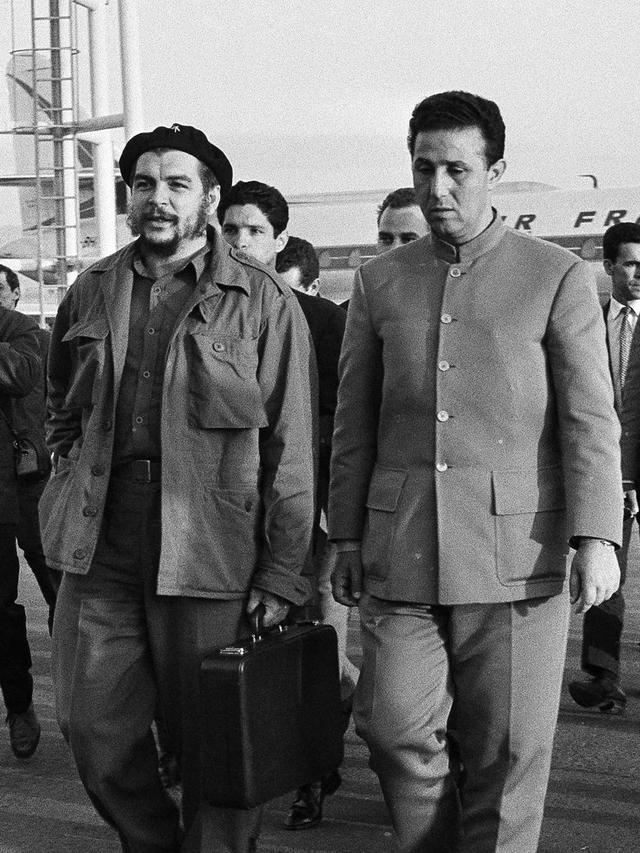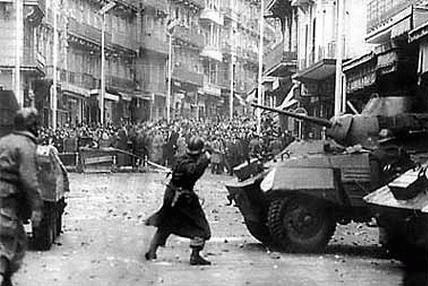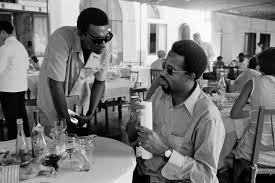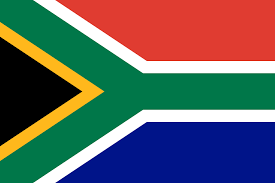After 60 Years of Independence Algeria Remains a Center of International Affairs
2022-04-13 00:08:51

France along with other European imperialist states such as Spain, Portugal, Britain, Italy, Germany, Belgium and the United States had met in Berlin in 1884-1885 where they carved up the African continent into spheres of interests based upon their overall strengths economically and militarily.
Western Sahara and the anti-colonial struggle in the region continue to preoccupy the government in Algiers
In March 1962, after eight years of armed, diplomatic and mass struggles, the National Liberation Front (FLN) compelled the colonial leadership in Paris to commit to relinquishing its control to an Algerian Provisional Government (GPRA), overturning 132 years of French imperialist domination.

The FLN and its allies were able to defeat the colonial regime in France setting an example for other states throughout the African continent who were then waging a revolutionary guerrilla war against settler-colonial and imperialist-backed European regimes.
This victory against French imperialism was a Pan-African project bringing in newly independent governments such as Tunisia, Morocco, Ghana and Mali. Dr. Frantz Fanon, a Martinique-born French-trained psychiatric physician went to Algeria to work on behalf of the colonial regime when he shifted his allegiance to the FLN becoming an ambassador and contributing editor to a leading journal (El Moudjahid) allied with the national liberation movement.

An ideological orientation which grew out of the independence movements in Africa emerged during the 20th century with worldwide influence. France along with other European imperialist states such as Spain, Portugal, Britain, Italy, Germany, Belgium and the United States had met in Berlin in 1884-1885 where they carved up the African continent into spheres of interests based upon their overall strengths economically and militarily.
These agreements of course, would eventually break down in the lead up to the first and second world wars. The outcomes of World War II created an atmosphere for U.S. imperialist domination. However, the weakening of France, Britain, Germany, Belgium, Spain and Portugal during WWII, emboldened the oppressed colonized masses of workers and farmers leading to the advent of national liberation revolutions throughout Africa and Asia from the 1940s through the latter decades of the 20th century.
France fought bitterly to maintain control of Algeria arguing that it was an overseas territory of Paris. Beginning with a blockade in 1827, the French military forces attacked Algiers in 1830 with no intentions of leaving the country.

One historical account of the growth of French colonial rule and the resistance to imperialism in Algeria says: “Settler domination of Algeria was not secured, however, until the fall of Napoleon III in 1870 and the rise of the Third Republic in France. Until then Algeria remained largely under military administration, and the governor-general of Algeria was almost invariably a military officer until the 1880s. Most Algerians—excluding the colons (settler population known as pieds noirs—were subject to rule by military officers organized into Arab Bureaus, whose members were officers with an intimate knowledge of local affairs and of the language of the people but with no direct financial interest in the colony." (www.britannica.com)
Prior to this period of the 1880s, between 1830-1847, resistance to French control began in Algeria. As a result of the defeat of another series of rebellions occurring in the 1860s and 1870s, marked the French consolidation of their control over the country. French settlers were able to secure the most arable lands forcing the Algerian people into a marginalized existence. Despite the political turmoil in France during the 1830s and 1840s, the military forces supported by ruling class continued their colonial project in Algeria.
The rise of fascism in Europe during the 1920s and 1930s provided impetus for Italy and Germany to seize larger swaths of territory in Europe and North Africa. The German military seizure of France in 1940 resulted in the installation of a government beholden to Hitler and his regime. However, Britain and the U.S. challenged German and Italian efforts in North Africa through a series of battles in Egypt, Libya and Algeria during 1940-1943.
In Algeria, a U.S. military occupation began in late 1942 under the banner of “Operation Torch" and continued throughout the war. At the conclusion of the WWII, Algerians embarked upon a mass campaign to win independence from France.
A massacre of thousands of Algerians took place starting May 8, 1945, the same day as the defeat of the Nazis in Germany. Known as the Setif and Guelma massacres, these attacks lead to the deaths of up to 30,000 Algerians after the killing of over 100 French colons. Rebellions erupted throughout sections of the country in response to the repression. Nonetheless, the French were able to contain the rebellion through brutal military actions, closing the avenues for nonviolent struggle in the North African state.
Algerian Armed Struggle Set a Precedent for Anti-Colonial Struggles
Despite the French crushing of the May 1945 rebellion, nine years later the movement would reconsolidate and launch an armed revolutionary struggle for national independence beginning in 1954. The Battle of Algiers and the intense guerrilla activity in the rural areas weakened the French resolve to remain as a colonial power.
The defeat of the French in North Vietnam during the same year at the Battle of Dien Bien Phu portended much for the future of military actions to preserve colonialism. The armed struggle continued until March 1962 when both the French governmental security forces and colons had exhausted all options aimed at remaining in power in Algiers.
After the independence of Algeria, the country under the FLN served as a base for national liberation struggles throughout the African continent. Nelson Mandela, the co-founder and initial commander of the African National Congress (ANC) military wing, Umkhonto We Sizwe, received training in a FLN camp in Morocco.

Fanon, who was deployed as a diplomat for the FLN in Ghana under the government of Dr. Kwame Nkrumah, served to bring greater awareness of the political significance of the liberation movement in Algeria. Although Fanon died of Leukemia in December 1961 while receiving medical care in the U.S., his writings compiled under the title of “The Wretched of the Earth" were widely read in Africa and the world.
In the U.S., revolutionary youth-led organizations such as the Student Nonviolent Coordinating Committee (SNCC) and the Black Panther Party (BPP) studied Fanon’s writing extensively utilizing them as a guide to the Black Revolution which was sweeping the world during the 1960s and 1970s. James Forman, the former executive secretary and international affairs director for SNCC, said in an address delivered at a regional Black youth conference in Los Angeles on November 23, 1967 that: “Racism and U.S. imperialism, inextricably entwined, are being assaulted by liberation fighters all over the world. In this worldwide struggle between revolution and counterrevolution, there can be no ‘innocent bystanders.’ As Frantz Fanon wrote in The Wretched of the Earth, ‘Yes; everybody will have to be compromised in the fight for the common good. No one has clean hands; there are no innocents and no onlookers. We all have dirty hands....Every onlooker is either a coward or a traitor.’ The fight against racism is not the struggle of Black people, it is ours. And the battle has been joined." (www.marxists.org)

By August 1969, Algeria was the host of the First Pan-African Cultural Festival which brought together people of African descent from throughout the continent and the globe. The Black Panther Party was invited as a delegation representing the African American people. Later the BPP was given an official embassy in Algiers which served as the International Section of the BPP from 1969-1972.
Algeria in the Modern Era
The former French colony became a large producer and exporter of oil and natural gas placing the independent nation as an important player in international relations. In addition to the Pan-African Cultural Festival of 1969 and the housing of the BPP, then the subjects of extreme repression by the U.S. government, the country captured the seccessionist counter-revolutionary Moise Tshombe of the former Belgian Congo, now known as the Democratic Republic of Congo (DRC).
Tshombe, who had been an agent of the former Belgian colonial authorities in southern DRC and was involved in the assassination of the first Congolese Prime Minister Patrice Lumumba in January 1961, died in Algerian custody in 1969. The U.S. National Security Council and the Central Intelligence Agency (CIA) wanted Lumumba killed, being ordered to do so by President Dwight D. Eisenhower in 1960-1961.
Disagreements over a national election in 1992 when the Islamic Salvation Front (FIS) was denied the ability to create a government in Algeria, led to a civil war that lasted for the remaining years of the 1990s. The civil war resulted in the deaths of many Algerians on both sides of the conflict. After the government prevailed by the beginning of the 21st century, the country continued to serve as a bastion of support for the Polisario Front, the liberation movement fighting for the liberation of the Sahrawi Arab Democratic Republic (SADR) of the Western Sahara, which remains under the domination of the Kingdom of Morocco.
In recent years, the Hirak opposition movement has organized large demonstrations demanding reforms in Algeria. The protest action created an atmosphere for the resignation of former President Abdelaziz Bouteflika in 2019.
By early 2020, a new leader, President Abdelmadjid Tebboune, was elected. The current administration opposed the secret granting of Israeli observer status within the African Union during 2021-2022. Working in conjunction with the governments of the Southern African Development Community (SADC), the decision by the AU Commission Chair, Moussa Faki Mahamat, was reversed at a summit in Addis Ababa, Ethiopia in early February of 2022. (www.middleeastmonitor.com)
In addition, the Algerian government recalled its ambassador from Spain after the government in Madrid recognized the control of the Kingdom of Morocco over the Western Sahara. The SADR has been given membership status within the AU and maintains a mission at the United Nations.
Relations with France have also been strained in recent months leading up to the 60th anniversary of independence. French President Emmanuel Macron has made comments indicating that the Algerian independence struggle was somehow illegitimate. These ridiculous claims by Paris are taking place amid rising anti-French sentiments across the continent, particularly in the Sahel region of West Africa where Macron has maintained troops under the guise of anti-terrorism. The fact of the matter is the security situation in North and West Africa has worsened due to the presence of French and U.S. troops known as the Africa Command (AFRICOM) and Operation Barkhane.
These military and diplomatic struggles unfolding in North and West Africa will determine the status of France and the U.S. within these regions of the continent. The role of imperialist militarism in Africa will continue to be a source of conflict until the foreign intervention is ended and unity is achieved.
In March 1962, after eight years of armed, diplomatic and mass struggles, the National Liberation Front (FLN) compelled the colonial leadership in Paris to commit to relinquishing its control to an Algerian Provisional Government (GPRA), overturning 132 years of French imperialist domination.

Algerian women in the national independence movement.
The FLN and its allies were able to defeat the colonial regime in France setting an example for other states throughout the African continent who were then waging a revolutionary guerrilla war against settler-colonial and imperialist-backed European regimes.
This victory against French imperialism was a Pan-African project bringing in newly independent governments such as Tunisia, Morocco, Ghana and Mali. Dr. Frantz Fanon, a Martinique-born French-trained psychiatric physician went to Algeria to work on behalf of the colonial regime when he shifted his allegiance to the FLN becoming an ambassador and contributing editor to a leading journal (El Moudjahid) allied with the national liberation movement.

Frantz Fanon at the All-African People's Conference in Ghana, Dec. 1958.
An ideological orientation which grew out of the independence movements in Africa emerged during the 20th century with worldwide influence. France along with other European imperialist states such as Spain, Portugal, Britain, Italy, Germany, Belgium and the United States had met in Berlin in 1884-1885 where they carved up the African continent into spheres of interests based upon their overall strengths economically and militarily.
These agreements of course, would eventually break down in the lead up to the first and second world wars. The outcomes of World War II created an atmosphere for U.S. imperialist domination. However, the weakening of France, Britain, Germany, Belgium, Spain and Portugal during WWII, emboldened the oppressed colonized masses of workers and farmers leading to the advent of national liberation revolutions throughout Africa and Asia from the 1940s through the latter decades of the 20th century.
France fought bitterly to maintain control of Algeria arguing that it was an overseas territory of Paris. Beginning with a blockade in 1827, the French military forces attacked Algiers in 1830 with no intentions of leaving the country.

Algeria war of independence against France.
One historical account of the growth of French colonial rule and the resistance to imperialism in Algeria says: “Settler domination of Algeria was not secured, however, until the fall of Napoleon III in 1870 and the rise of the Third Republic in France. Until then Algeria remained largely under military administration, and the governor-general of Algeria was almost invariably a military officer until the 1880s. Most Algerians—excluding the colons (settler population known as pieds noirs—were subject to rule by military officers organized into Arab Bureaus, whose members were officers with an intimate knowledge of local affairs and of the language of the people but with no direct financial interest in the colony." (www.britannica.com)
Prior to this period of the 1880s, between 1830-1847, resistance to French control began in Algeria. As a result of the defeat of another series of rebellions occurring in the 1860s and 1870s, marked the French consolidation of their control over the country. French settlers were able to secure the most arable lands forcing the Algerian people into a marginalized existence. Despite the political turmoil in France during the 1830s and 1840s, the military forces supported by ruling class continued their colonial project in Algeria.
The rise of fascism in Europe during the 1920s and 1930s provided impetus for Italy and Germany to seize larger swaths of territory in Europe and North Africa. The German military seizure of France in 1940 resulted in the installation of a government beholden to Hitler and his regime. However, Britain and the U.S. challenged German and Italian efforts in North Africa through a series of battles in Egypt, Libya and Algeria during 1940-1943.
In Algeria, a U.S. military occupation began in late 1942 under the banner of “Operation Torch" and continued throughout the war. At the conclusion of the WWII, Algerians embarked upon a mass campaign to win independence from France.
A massacre of thousands of Algerians took place starting May 8, 1945, the same day as the defeat of the Nazis in Germany. Known as the Setif and Guelma massacres, these attacks lead to the deaths of up to 30,000 Algerians after the killing of over 100 French colons. Rebellions erupted throughout sections of the country in response to the repression. Nonetheless, the French were able to contain the rebellion through brutal military actions, closing the avenues for nonviolent struggle in the North African state.
Algerian Armed Struggle Set a Precedent for Anti-Colonial Struggles
Despite the French crushing of the May 1945 rebellion, nine years later the movement would reconsolidate and launch an armed revolutionary struggle for national independence beginning in 1954. The Battle of Algiers and the intense guerrilla activity in the rural areas weakened the French resolve to remain as a colonial power.
The defeat of the French in North Vietnam during the same year at the Battle of Dien Bien Phu portended much for the future of military actions to preserve colonialism. The armed struggle continued until March 1962 when both the French governmental security forces and colons had exhausted all options aimed at remaining in power in Algiers.
After the independence of Algeria, the country under the FLN served as a base for national liberation struggles throughout the African continent. Nelson Mandela, the co-founder and initial commander of the African National Congress (ANC) military wing, Umkhonto We Sizwe, received training in a FLN camp in Morocco.

Nelson Mandela and FLN fighters during the early 1960s.
Fanon, who was deployed as a diplomat for the FLN in Ghana under the government of Dr. Kwame Nkrumah, served to bring greater awareness of the political significance of the liberation movement in Algeria. Although Fanon died of Leukemia in December 1961 while receiving medical care in the U.S., his writings compiled under the title of “The Wretched of the Earth" were widely read in Africa and the world.
In the U.S., revolutionary youth-led organizations such as the Student Nonviolent Coordinating Committee (SNCC) and the Black Panther Party (BPP) studied Fanon’s writing extensively utilizing them as a guide to the Black Revolution which was sweeping the world during the 1960s and 1970s. James Forman, the former executive secretary and international affairs director for SNCC, said in an address delivered at a regional Black youth conference in Los Angeles on November 23, 1967 that: “Racism and U.S. imperialism, inextricably entwined, are being assaulted by liberation fighters all over the world. In this worldwide struggle between revolution and counterrevolution, there can be no ‘innocent bystanders.’ As Frantz Fanon wrote in The Wretched of the Earth, ‘Yes; everybody will have to be compromised in the fight for the common good. No one has clean hands; there are no innocents and no onlookers. We all have dirty hands....Every onlooker is either a coward or a traitor.’ The fight against racism is not the struggle of Black people, it is ours. And the battle has been joined." (www.marxists.org)

Algeria talks between Stokely Carmichael and Eldridge Cleaver, Aug. 1969.
By August 1969, Algeria was the host of the First Pan-African Cultural Festival which brought together people of African descent from throughout the continent and the globe. The Black Panther Party was invited as a delegation representing the African American people. Later the BPP was given an official embassy in Algiers which served as the International Section of the BPP from 1969-1972.
Algeria in the Modern Era
The former French colony became a large producer and exporter of oil and natural gas placing the independent nation as an important player in international relations. In addition to the Pan-African Cultural Festival of 1969 and the housing of the BPP, then the subjects of extreme repression by the U.S. government, the country captured the seccessionist counter-revolutionary Moise Tshombe of the former Belgian Congo, now known as the Democratic Republic of Congo (DRC).
Tshombe, who had been an agent of the former Belgian colonial authorities in southern DRC and was involved in the assassination of the first Congolese Prime Minister Patrice Lumumba in January 1961, died in Algerian custody in 1969. The U.S. National Security Council and the Central Intelligence Agency (CIA) wanted Lumumba killed, being ordered to do so by President Dwight D. Eisenhower in 1960-1961.
Disagreements over a national election in 1992 when the Islamic Salvation Front (FIS) was denied the ability to create a government in Algeria, led to a civil war that lasted for the remaining years of the 1990s. The civil war resulted in the deaths of many Algerians on both sides of the conflict. After the government prevailed by the beginning of the 21st century, the country continued to serve as a bastion of support for the Polisario Front, the liberation movement fighting for the liberation of the Sahrawi Arab Democratic Republic (SADR) of the Western Sahara, which remains under the domination of the Kingdom of Morocco.
In recent years, the Hirak opposition movement has organized large demonstrations demanding reforms in Algeria. The protest action created an atmosphere for the resignation of former President Abdelaziz Bouteflika in 2019.
By early 2020, a new leader, President Abdelmadjid Tebboune, was elected. The current administration opposed the secret granting of Israeli observer status within the African Union during 2021-2022. Working in conjunction with the governments of the Southern African Development Community (SADC), the decision by the AU Commission Chair, Moussa Faki Mahamat, was reversed at a summit in Addis Ababa, Ethiopia in early February of 2022. (www.middleeastmonitor.com)
In addition, the Algerian government recalled its ambassador from Spain after the government in Madrid recognized the control of the Kingdom of Morocco over the Western Sahara. The SADR has been given membership status within the AU and maintains a mission at the United Nations.
Relations with France have also been strained in recent months leading up to the 60th anniversary of independence. French President Emmanuel Macron has made comments indicating that the Algerian independence struggle was somehow illegitimate. These ridiculous claims by Paris are taking place amid rising anti-French sentiments across the continent, particularly in the Sahel region of West Africa where Macron has maintained troops under the guise of anti-terrorism. The fact of the matter is the security situation in North and West Africa has worsened due to the presence of French and U.S. troops known as the Africa Command (AFRICOM) and Operation Barkhane.
These military and diplomatic struggles unfolding in North and West Africa will determine the status of France and the U.S. within these regions of the continent. The role of imperialist militarism in Africa will continue to be a source of conflict until the foreign intervention is ended and unity is achieved.
News
powered by Surfing Waves
Support ASCARF
ASCARF is a tax-exempt Public Benefit Organisation (PBO) that supports Public Benefit Activities (PBA). ASCARF appreciates your donations to develop the mission into global online Research Center. All accumulated funds to be forwarded to our Public Benefit Activities and outstanding authors. Thank you in advance!







